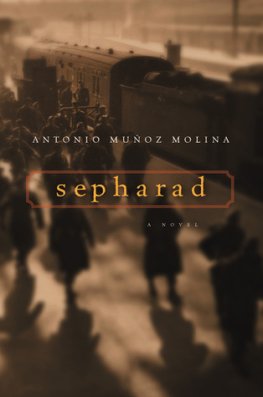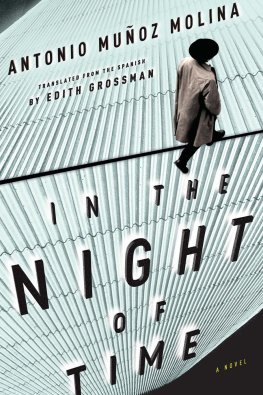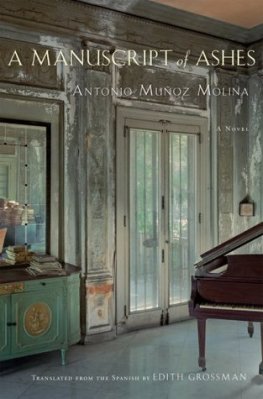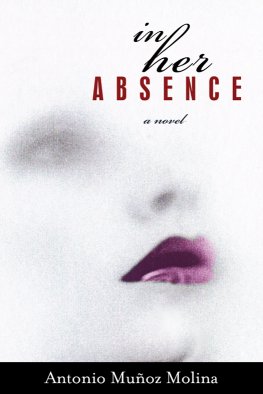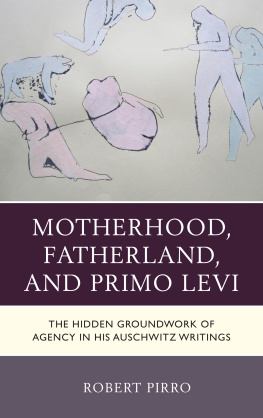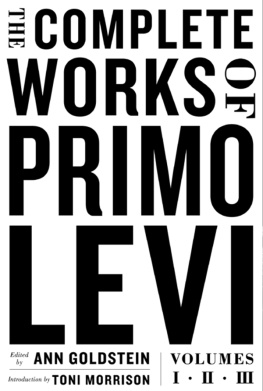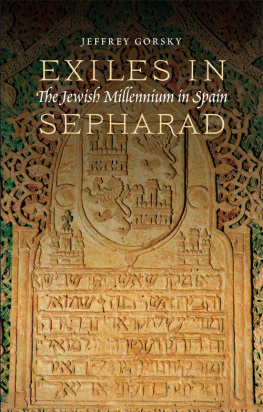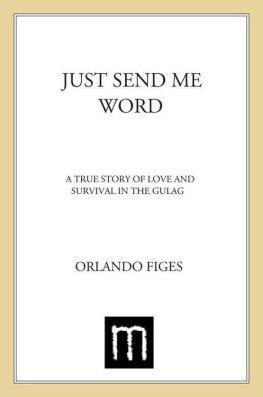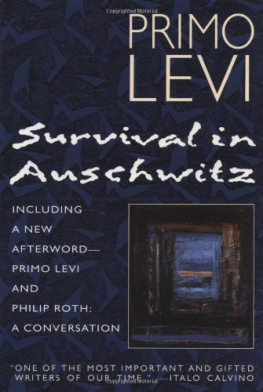Antonio Munoz Molina
Sepharad
For Antonio and Miguel,
for Arturo and Elena,
with the wish that they live fully
the future novels of their lives
Yes, said the usher, they are accused,
everyone you see here is accused.
Really? asked K. Then they are my comrades.
FRANZ KAFKA, The Trial
WE HAVE MADE OUR LIVES far away from our small city, but we just cant get used to being away from it, and we like to nurture our nostalgia when it has been a while since weve been back, so sometimes we exaggerate our accent when talking among ourselves, and use the common words and expressions that weve been storing up over the years and that our children can vaguely understand from having heard them so often. Godino, the secretary of our regional association which has been rescued from its dismal lethargy thanks to his enthusiasm and dynamism regularly organizes meals where we enjoy the food and recipes of our homeland, and if we are disgruntled that our gastronomy is as little known by foreigners as our monumental architecture or our Holy Week, we like having dishes that no one knows about, and giving them names that have meaning only to us. Oh, theres nothing like our gordal and cornezuelo olives! Godino exclaims, the plump ones and the long, pointed ones! Our rolls, our borrachueloswe dream of those sugar-sprinkled pastries with a light touch of brandy our layered pasta, our Easter cakes, our morcillaour sausage has rice, not onion our typical gazpacho, which is nothing at all like Andalusian gazpacho, and our wild-artichoke salad In the private room of the Museo del Jamn, where those of us on the directors council often meet, Godino gluttonously hacks off a piece of bread and before dipping it into the bowl of steaming morcilla makes a gesture like a benediction and recites these lines:
Morcilla, blessed lady,
worthy of our veneration.
The owner of the Museo is a countryman of ours who, as Godino says, often personally oversees the catering of our feasts, in which there isnt a single ingredient that hasnt come from our city, not even the bread, which is baked in La Trinis oven, the very oven that to this day produces the mouthwatering madeleines and the Holy Week cakes with a hard-boiled egg in the center that we loved so much when we were kids. Now, to tell the truth, we realize that the oily dough sits a little heavy on our stomachs, and though in our conversations we keep praising the savor of those hornazos, which are absolutely unique in the world and no one but us knows the name of, if we start eating one, we quit before were through, even though its painful to waste food something our mothers always taught us. We remember the early days in Madrid, when we used to go to the bus station to pick up a food package sent from home: cardboard boxes carefully sealed with tape and tightly tied with cord, bringing from across all that distance the undiluted aroma of the family kitchen, the delicious abundance of all the things we have missed and yearned for in Madrid: butifarros and chorizos, sausages from the recent butchering, borrachuelos sparkling with sugar, even a glass jar filled with boiled red pepper salad seasoned with olive oil, the greatest delicacy you can ask for in a lifetime. For a while the dim interior of the armoire in our boardinghouse room would take on the succulent and mysterious penumbra of those cupboards where we kept food in the days before the advent of refrigerators. (Now when I tell my children that back when I was their age there was no refrigerator or television in my house, they dont believe it, or worse yet, they look at me as if I were a caveman.)
We had been away from our homes and our city for long, long months, but the smell and taste of them offered the same consolation as a letter, the same profound happiness and melancholy we felt after talking on the phone with our mothers or sweethearts. Our children, who spend the whole day glued to the telephone, talking for hours with someone theyve seen only a short while before, cant believe that for us, not only in our childhood but our early teens as well, the telephone was still a novelty, at least in ordinary families, and because the system wasnt as yet automated, calling from one city to another ringing someone up, as we said then was a rather difficult undertaking that often meant standing in line for hours, waiting your turn in a public telephone office crammed with people. Im not exactly an old man (although at times my wife says I seem ancient enough), but I remember when I had to call my mother at a neighbors house and wait until they went to get her, all the while hearing footsteps in the wooden booth at the telephone company on the Gran Va. Finally I would hear her voice and be overcome by an anguish I have felt only rarely since, a sensation of being far away and of having left my mother to grow old alone. We both would be nearly tongue-tied, because we used that exotic instrument so seldom that it made us very nervous, and we were consumed by the thought of how much we were paying for a conversation in which we barely managed to exchange a few formalities as trite as those in our letters: Are you well? Have you been behaving? Dont forget to wear your overcoat when you go out in the morning, its getting cold. You had to swallow hard to work up the nerve to ask the person you were talking with to send a food package, or a money order. You hung up the telephone and suddenly all that distance was real again, and with that, besides the desolation of going outside on a Sunday evening, there was the contemptible relief of having put behind you an uncomfortable conversation in which you had nothing to say.
Now that distances have become much shorter, we feel farther and farther apart. Who doesnt remember those endless hours on the midnight express, in the second-class coaches that brought us to Madrid for the first time and deposited us, done in from fatigue and lack of sleep, in the unwelcoming dawn of Atocha Station, the old one, which our children never knew, although some of them, just kids, or still in their mamas womb, spent arduous nights on those trains that carried us south during the Christmas vacations we looked forward to so much, or during the short but cherished days of Holy Week, or of our strange late fair that falls at the end of September, when the men of our parents generation picked the most delicious grapes and pomegranates and figs and allowed themselves the luxury of attending the two bullfights of the fair: the one on Saint Michaels day, which opened the fair, and the one on the day of Saint Francis, which was the most splendid, the big day, our parents called it, but also the saddest because it was the last, and because the autumn rain often spoiled the corrida and forced the mournful closing of the few carousels we had in those days, completely covered over with wet canvas.
TIME LASTED LONGER THEN, and the kilometers were longer. Not many people had a car, and if you didnt want to spend the whole night on the train, you got on the bus we called the Pava, which took seven hours, first, because of all the twists and turns on the highway toward the north of our province, and also because of the cliffs and tunnels of Depeaperros, which were like the entrance into another world, the frontier, where our part of the world was left behind on the last undulating hillsides of olive trees, and then the endless plains of La Mancha, so monotonous that sleep seemed to bleed into exhaustion and prevail over discomfort and you fell fast asleep and with a little luck didnt open your eyes again until the bus was approaching the lights of Madrid. What a thrill it was to see the capital from afar, the red tile roofs and, high above them, the tall buildings that impressed us so strongly: the Telephone Building, the Edificio Espaa, the Torre de Madrid!

